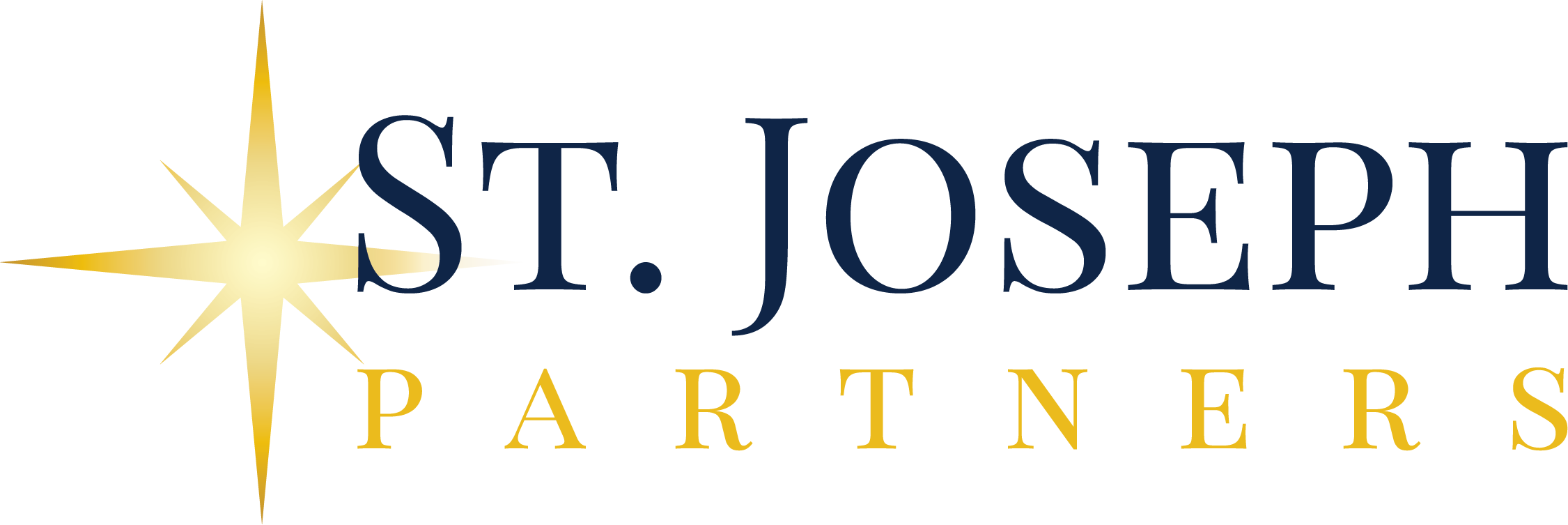Writings From A 2nd Century Evangelist On Fasting
|
"When you pray, pray first for the Holy Spirit because when you have the Holy Spirit, you have everything." - Medjugorje April 4, 1985 |
| ____________________________________________________________________________ First we would like to invite you to join us for an extra three day fast for the restoration of America to the Christian Republic it was founded to be and for the restoration of the church that it become all the Holy Spirit would desire it to be. Given all that is transpiring at this hour we will fast July 1st, 2nd and 3rd ahead of the celebration of Independence Day on July 4th. While it may seem that it does not matter if you make an extra effort given the state of America and the church, not only does your individual response matter materially on such grand levels, but your choices to fast will directly impact the blessings and protection on you and your families. Ahead of that here are some writings that were new to us from a 2nd century evangelist whose writings have stood the test of time…
On today’s fast day, we observe the Memorial of St Ireneus, a bishop of the 2nd century who knew Polycarp, a disciple of the Beloved disciple, St John. Ireneus’ famous work entitled Against Heresies sought to combat Gnosticism, whose adherents believed that the material world was evil, and that they received secret wisdom directly from Christ.
During his life, there had not been universal acceptance of all four gospels yet. Some communities preferred the Gospel of John, some preferred Luke, others, Mark, and others Matthew. St Ireneus is the earliest writer who accepted all four gospels.
Naturally, as the faith spread like wildfire throughout the Roman Empire after Pentecost, those who had been taught directly from the apostles carried on the apostolic tradition most closely. The Scriptures we now know as the Bible had not been assembled yet, as various books and letters existed and were read in various locales. Consequently, the teachings and traditions handed down from the apostles were key to maintaining the deposit of faith handed down from Christ himself.
Ireneus was a great unifier, trying to harmonize where possible, yet distinguish truth from error when necessary. Once, he travelled to Rome to discuss discrepancies on the dates of celebrating Easter in different locations.
On fasting, we have some of his writings which indicate that already, Christians in different places already had different practices. Since Ireneus was discipled by a disciple of St John, he followed that rule of fasting, a rule which was so obvious that it was not written down except in one place that we know of: the Didache, which specifies two days of weekly fasting on Wed and Friday. However, Ireneus wrote that others fasted on different days, and they did not agree on how to fast. He said that some considered a fast through the “nones,” the 9th hour (or 3 pm), whereas others considered the nocturnal hours part of the fast. The differences in fasting only served to establish harmony of the faith, the great unifier observed. That is, although some may differ on how or when or how often to fast, the fact is that they all agree that Christians should fast.
Although his predecessor, the bishop of Lyons, France had been martyred, Ireneus accepted the position, and he himself became a martyr. Here are some specific quotes from Ireneus on fasting from the 2nd century:
Esther also, being perfect in faith, exposed herself to no less danger, in order to deliver the twelve tribes of Israel from impending destruction. For with fasting and humiliation she entreated the everlasting God, who seeth all things; and He, perceiving the humility of her spirit, delivered the people for whose sake she had encountered peril.
Wherefore, forsaking the vanity of many, and their false doctrines, let us return to the word which has been handed down to us from the beginning; “watching unto prayer,” and persevering in fasting; beseeching in our supplications the all-seeing God “not to lead us into temptation,” (If one were not fasting regularly would there be a need for perseverance in fasting?)
Devote thyself to fasting and prayer, but not beyond measure, lest thou destroy thyself thereby. Do not altogether abstain from wine and flesh, for these things are not to be viewed with abhorrence, since [the Scripture] saith, “Ye shall eat the good things of the earth.” And again, “Ye shall eat flesh even as herbs.” And again, “Wine maketh glad the heart of man, and oil exhilarates, and bread strengthens him.” But all are to be used with moderation, as being the gifts of God. “For who shall eat or who shall drink without Him? For if anything be beautiful, it is His; and if anything, be good, it is His.” (Feasting as well as fasting is Godly!) Every one that teaches anything beyond what is commanded, though he be [deemed] worthy of credit, though he be in the habit of fasting, though he live in continence, though he work miracles, though he have the gift of prophecy, let him be in thy sight as a wolf in sheep’s clothing… (Even if someone is “in the habit of fasting”, i.e., fasts regularly … the perspective puts regular fasting on a plane with performing miracles in terms of significance.) Ignatius, the disciple of John the apostle, a man in all respects of an apostolic character, governed the Church of the Antiochians with great care, having with difficulty escaped the former storms of the many persecutions under Domitian, inasmuch as, like a good pilot, by the helm of prayer and fasting… If therefore the Son of God, who is Lord [of all things], and who will judge the living and the dead, suffered, that His stroke might give us life, let us believe that the Son of God could not have suffered except for our sakes. Moreover, when fixed to the cross, He had given Him to drink vinegar and gall. Hearken how the priests of the people gave previous indications of this. His commandment having been written, the Lord enjoined, that whosoever did not keep the fast should be put to death, because He also Himself was to offer in sacrifice for our sins the vessel of the Spirit, in order that the type established in Isaac when he was offered upon the altar might be fully accomplished. What, then, says He in the prophet? “And let them eat of the goat which is offered, with fasting, for all their sins.” (If you don’t fast you should be put to death? That is the first we have heard of that … could fasting have been held as that important coming out of Jesus’ walk on earth?) And lastly consider the quote below that shows the obligation to fast at least once day was the minimum discussion…the admission that contrasting observances of fasting being practiced were “not very accurate”, handed down by “custom” … and the observation that even Polycarp, witness to the life of John the disciple who spoke with the savior about fasting could not persuade theologians that weekly fasting was expected…
For the controversy is not merely as regards the day, but also as regards the form itself of the fast. For some consider themselves bound to fast one day, others two days, others still more, while others [do so during] forty: the diurnal and the nocturnal hours they measure out together as their [fasting] day. And this variety among the observers [of the fasts] had not its origin in our time, but long before in that of our predecessors, some of whom probably, being not very accurate in their observance of it, handed down to posterity the custom as it had… For neither could Anicetus persuade Polycarp to forego the observance [in his own way], inasmuch as these things had been always [so] observed by John the disciple of our Lord, and by other apostles with whom he had been conversant; nor, on the other hand, could Polycarp succeed in persuading Anicetus to keep [the observance in his way], for he maintained that he was bound to adhere to the usage of the presbyters who preceded him.
In your charity on this fast day, we would also ask you to turn your prayers and petitions for Bishop Strickland of Tyler, TX who is one of a very few Catholic bishops who stand against the errors of our day. Most recently, he was the lone bishop who attended the rally opposing the blasphemous, sexually wounded, drag queens prior to the LA Dodgers game. For speaking the Truth with kindness, charity, and clarity, he has been “visited” by representatives of the Vatican. We have no doubt that he will not waver in the face of wolves in sheep’s clothing, and we pray that the seeds of his white martyrdom will give rise to more and more faith. St Ireneus, ora pro nobis! Click Here & Join Us - Receive Our Free Fasting Reminders ____________________________________________________________________________ |
|
Why We Fast – Our Core Fasting Intentions 1) We add the new fasting intention of taking back the church from evil. We submit the three-step process to achieve this victory is 1-Repent, 2-Prayer & Fasting and, 3-Imitate our Savior by throwing the evil leadership from the church. We will seek to emulate the Savior in our effort to End The USCCB, an organization that has been devastating to the church. (“You shall know the spirit by the fruits” - Matt. 7:16) 2) For the Holy Spirit to reign down upon America, renewing our land as the Christian, capitalist meritocracy we were founded to be. 3) For the protection of our police, firefighters, military and their families from harm and that the Lord bless their courageous generosity on our behalf. 4) For the protection of the families who fast with us, and for God’s blessings of abundance upon them and that true to His word, we will be able to witness that He prospered us in famine. 4) For all patriots who put themselves on the front lines in combatting evil and for all of the warriors who are stepping up around the nation to fight for the gospel – May The Father cover them in the blood of our savior, protect them and their families from evil and bring victory to their endeavors. Who We Are |





